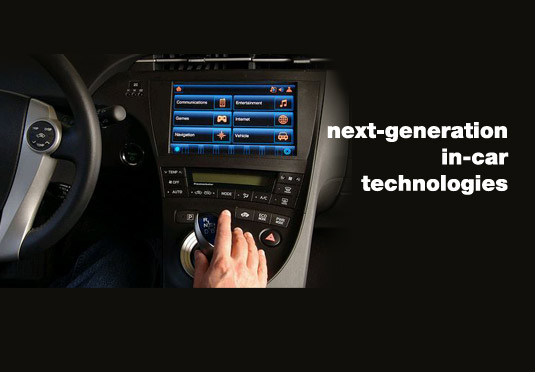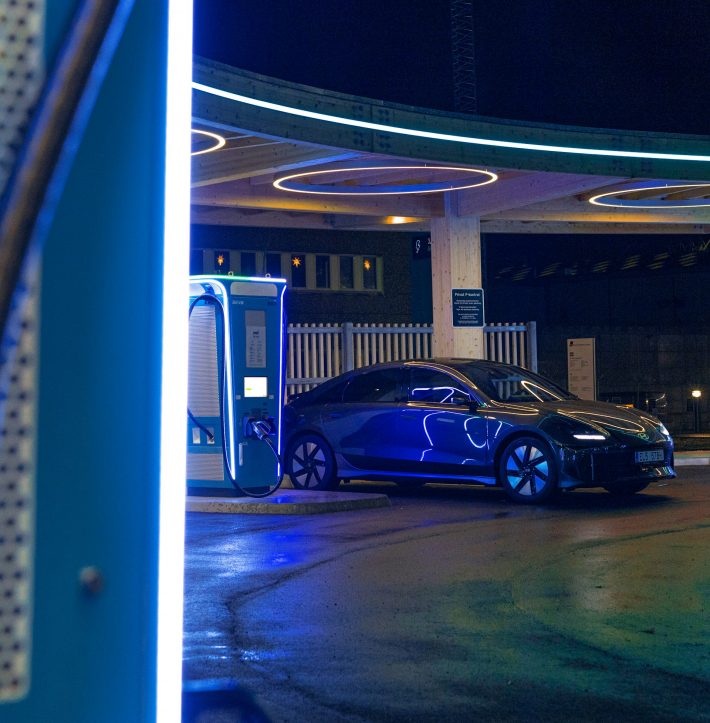New York, USA, 2 December, 2013 – High interest in next-generation in-car technologies among drivers in emerging economies could help shape future demand for sales and provide the automotive industry with a sustained revenue stream, according to a new survey by Accenture.
The survey of 14,000 drivers shows that drivers are twice as likely to choose a car based on in-vehicle technology options than its performance, demonstrating the continued importance of the connected vehicle to the automotive industry.
Drivers in Brazil, China, France, Germany, Indonesia, Italy, Malaysia, South Africa, South Korea, Spain, the UK and the United States were questioned on their current use of connected vehicle technologies and expectations for future use. Technologies and digital services covered by the survey included navigation and traffic services; a range of autonomous driving aids; in-car services, including entertainment, work tools and learning; safety services; black box-type monitoring of a person’s driving patterns that can help reduce insurance premiums; and a number of passenger-related services. More than a third (39%) of the drivers surveyed said that their primary consideration in choosing a new automobile is in-car technology, compared with 14% who said driving performance had the greatest influence on their choice.
According to the survey, drivers in China, Brazil, Indonesia and Malaysia expressed the strongest interest in all of the connected vehicle technologies and digital services currently available, which are used widely by consumers in more mature markets. Among the respondents in emerging economies, Chinese drivers had the highest current usage and greatest desire for future use of most of the technologies and services, followed by drivers in Brazil, Indonesia, Malaysia and South Africa.
“Combined with the increased use of connected vehicle technologies and digital services among consumers in mature markets, the high demand across the emerging world will no doubt speed the development and influence the rollout of next-generation products and services by the global auto industry,” said Luca Mentuccia, Global Managing Director for Accenture’s Automotive practice. “This is especially significant considering that nearly 40%of drivers surveyed indicated that in-car technology is the primary factor they consider in purchasing a new car.”
While there is ongoing debate about the future and safety of driverless cars, Accenture’s research shows that, on average, 90% of the survey respondents have an interest in some autonomous driving options, primarily those related to safety. The most popular features include lane-changing warning systems, collision-warning systems, lane-keeping systems, automatic braking systems that prevent hitting an object and fully automatic parking.
Accenture believes that the demand for individual aspects of autonomous driving will encourage original equipment manufacturers (OEMs), regulators and industry organisations to address the issues that are currently preventing the widespread use of driverless vehicle technology.
The research uncovered strong interest among consumers in vehicle health reports and vehicle lifecycle management services. According to Accenture, OEMs that are able to tap into this demand could open up new revenue streams around maintenance-related digital services and engine and parts wear and tear. While only 13%of drivers surveyed said they currently use a vehicle health report and 12% use vehicle lifecycle management services, 39% and 37%, respectively, expect to start using these services soon.
“This increasing level of demand could lead to the rise of concierge-type digital services as drivers outsource the real-time monitoring of engine performance to third-party service providers, expanding the OEM after-sales revenue model,” Mentuccia said. “However, as drivers increase their demand for next-generation connected vehicle technologies across navigation, infotainment, safety, autonomous driving and mobile device integration, vehicle manufacturers face a challenge in being able to meet the complex integration requirements of a broad array of technologies in each range of vehicles. They must also look at maximising sales by incorporating the right technologies into the appropriate vehicle range in each country.”
Accenture believes that the ability to source data from vehicles will enable a range of new business-to-business and business-to-consumer digital services. For OEMs, detailed data from vehicles could help them improve their engineering processes, reduce warranty costs and improve their relationships with dealers by helping dealers manage parts inventory and service.
Data sourced from vehicles could also be used to enable a portfolio of value-added B2C services, including vehicle diagnostics, driving dashboards and concierge services, delivered to drivers through multiple devices: a vehicle’s head unit, a driver’s smartphone and/or tablet.
With technology now the most significant criteria in vehicle buying decisions, manufacturers are turning to digital technologies to shape demand for the next generation of connected vehicles. Social car shopping tools and even crowd funding for car purchases have started to emerge, where social media is being used to customize new cars. Accenture predicts a rapid increase in new digital strategies, digital technologies and digital processes by OEMs as they seek to innovate, compete and expand as their customers seek out the next generation of connected vehicle services.
“Connected vehicle technology is rapidly becoming a key car-purchasing criterion,” Mentuccia said. “As a result, it also is dominating much of the industry’s advertising campaigns. Going forward, consumer expectations for better technology will require that manufacturers provide more customised, interactive websites to better aid consumers in making car-buying decisions. Accenture research has shown that the industry needs to consider adopting digital innovations, such as web chat and mobile-enabled websites, to enhance consumers’ digital shopping preferences.”










